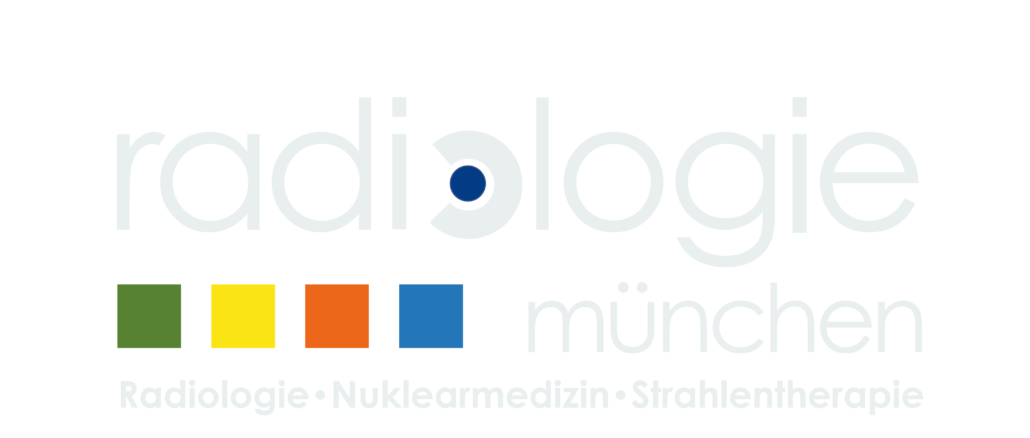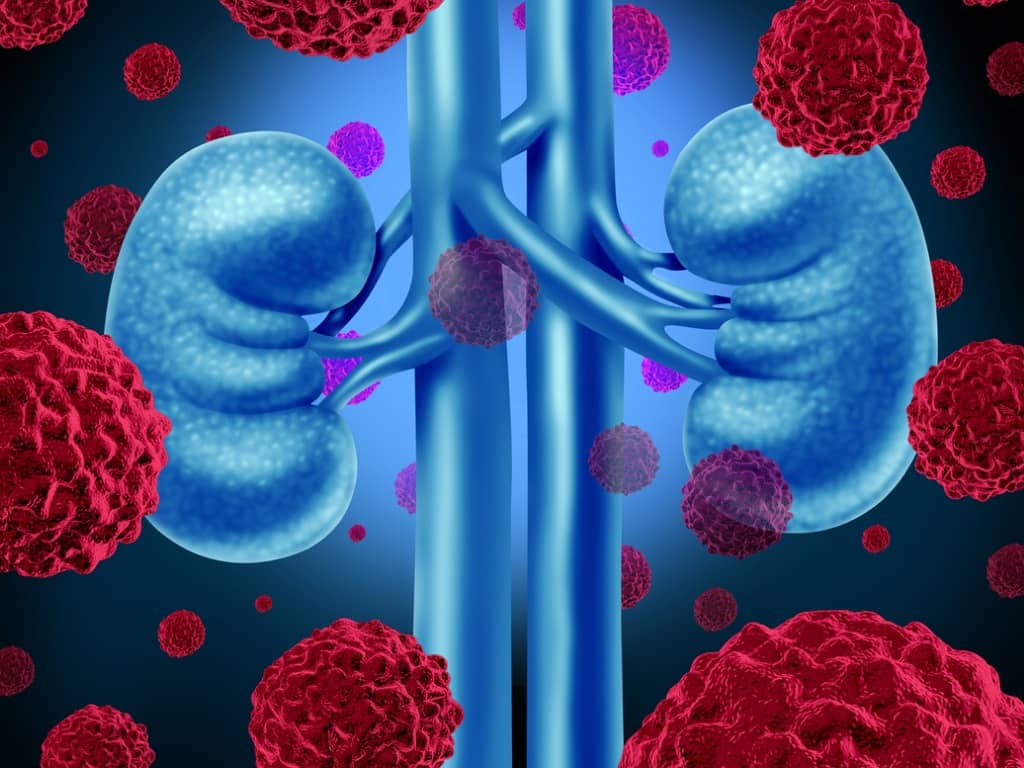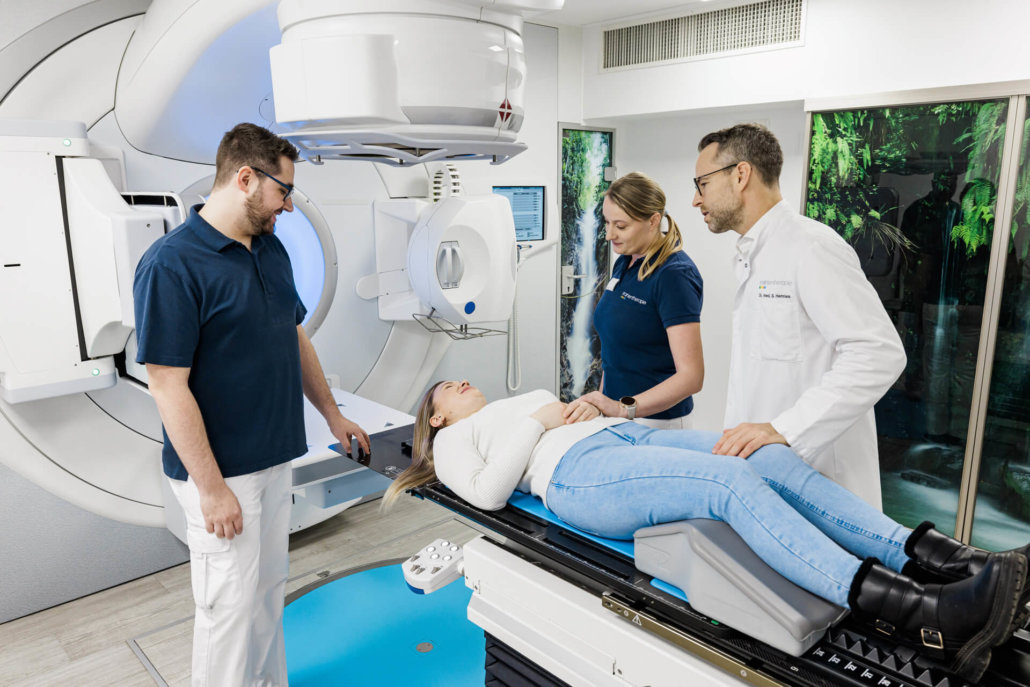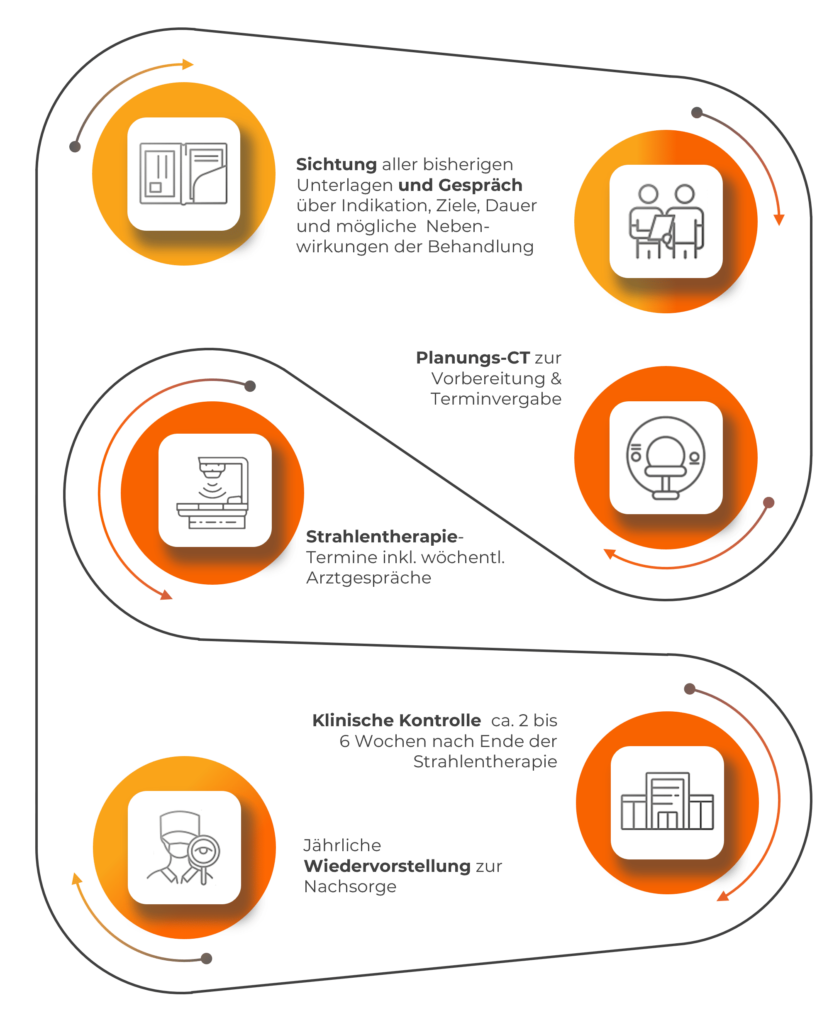Kidney cancer – detectable early
Malignant tumors of the kidneys (kidney cancer) occur about twice as frequently in men as in women. Renal carcinomas are often detected at an early stage, which is why the survival rate after 5 years is relatively high (surveys by the Robert Koch Institute). Treatment by chemotherapy or surgery is often combined with adjuvant radiation therapy for successful treatment.
2 x
as many new cases in men as in women
approx. 77 %
Relative survival rate after 5 years
approx. 95 %
of all renal carcinomas in adults are renal cell carcinomas
Source: “Cancer in Germany”, RKI/Krebsdaten.de
Where can you have kidney cancer treated in Munich?
Renal carcinoma is one of the cancers with a relatively high survival rate after 5 years from disease onset. In addition to rapid diagnosis, rapid and efficient treatment is important here, as with other carcinomas. Your urologist will work with other specialists to draw up a treatment plan to fight the cancer. Above all, surgery, drug-based tumor therapies and radiation therapy are important aspects of the therapeutic strategy.
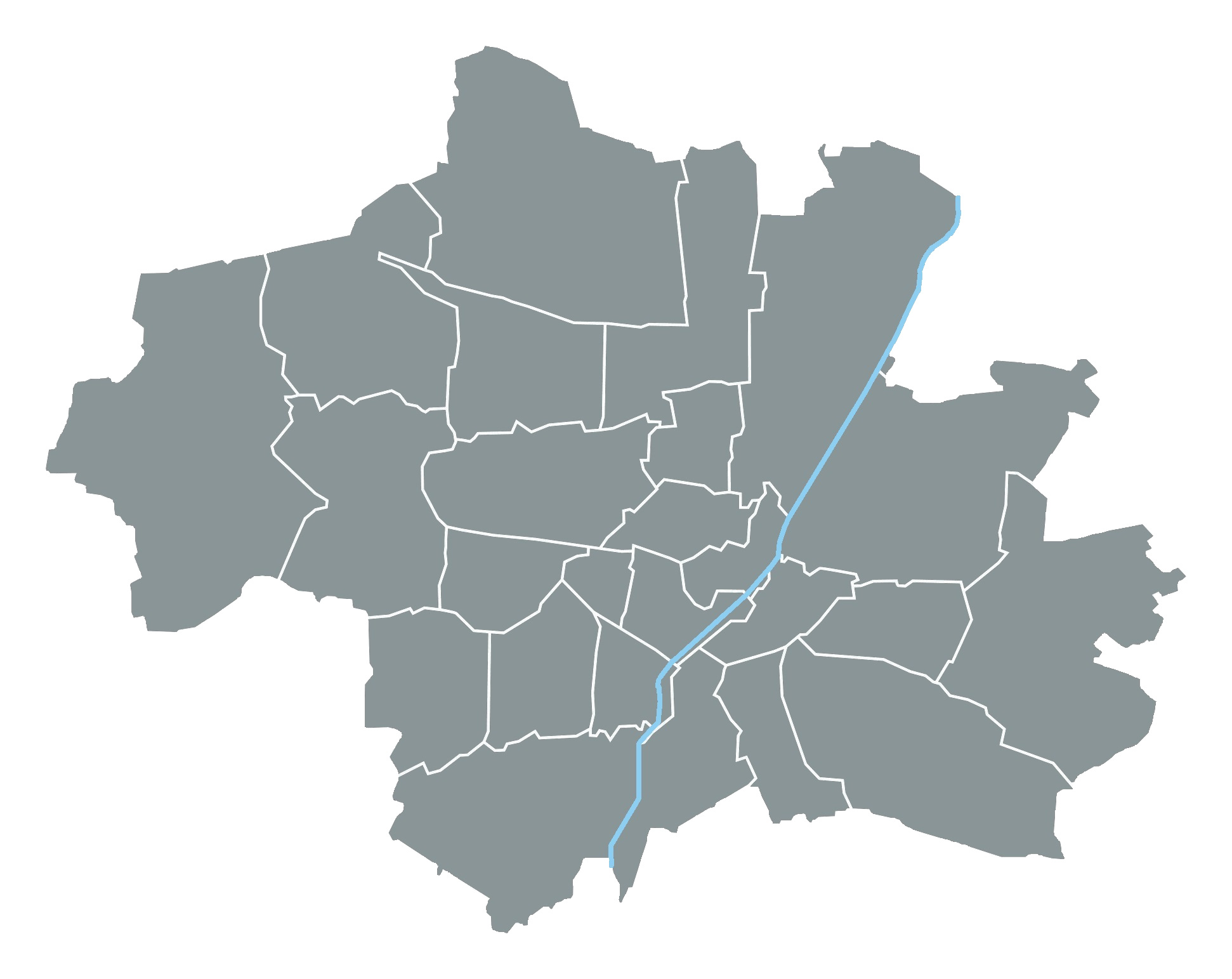
How is kidney cancer treated?
In the most common kidney cancer, renal cell carcinoma, the disease originates in the cells of the urinary tubules. Diagnosed early, renal cell carcinoma is readily treatable; in advanced stages, this becomes significantly more complex. The kidneys have a good blood supply and so cancer cells and metastases can spread throughout the body via the bloodstream. For this reason, early detection is very important.
Depending on the tumor stage diagnosed, how much the cancer has spread in the body and the patient’s general condition, the appropriate treatment is selected for the patient. This consists primarily of surgery and treatment with medication. Radiation therapy does not play a central role in the treatment of this type of cancer in primary therapy, but may be used as an adjunct.
Operation
In the best case, the cancer is small and localized to the kidney. In this case, the tumor can be surgically removed with a minimally invasive procedure. The kidney is preserved. In the case of larger tumors, the affected kidney may be removed completely.
If the cancer in the kidney is already advanced or metastases have spread throughout the body, surgery alone is no longer sufficient. The tumor is usually removed, but the focus is then on targeted treatment of the cancer with drugs.
Drug therapy
The advantage of this systemic therapy method is that drugs act throughout the body and target cancer cells. The active ingredients prevent the cancer from growing and spreading further.
Radiotherapy
Radiation therapy is used mainly in advanced stages of cancer, when the aim is to destroy the metastases in the affected organs of the body. In contrast, renal cell carcinoma itself is not very sensitive to radiation. Radiation aims to relieve pain and other symptoms, especially when surgery is no longer an option.
Teletherapy is mostly used in the irradiation of renal cancer and its metastases. In this method, high-energy beams from a light accelerator are directed through the skin onto the tumor tissue. This radiation destroys cell growth of cells so that the spread of cancer in the body is inhibited. In the course of this, the pain in the affected parts of the body is also reduced.
What is the treatment process in our practices?
What do you need to know before, during and after radiotherapy?
Please make sure you eat a healthy, balanced diet and drink enough water. A healthy nutritional status plays an important role in the treatment and spread of the tumor, it also helps reduce the side effects of radiation therapy. Alcohol and smoking should be avoided.
Stay active! On the one hand, exercise and sport have a positive influence on cancer treatment and its consequences, as the patient can tolerate them better. On the other hand, physical exercise lowers the risk of relapse.
The drug and immunotherapy may affect the patient’s quality of life, as the treatment is strenuous. Please inform your attending physician about these side effects. Adjustment of therapy may be able to provide relief.
What are the side effects of kidney treatment?
The treatment plan is individually tailored to the patient so that the cancer treatment is as efficient as possible and at the same time as little stressful for the patient as possible.
Nevertheless, side effects may occur during and after treatment. In drug and immunotherapy, inflammation of the skin and mucous membranes, as well as flu-like symptoms, fatigue, respiratory or digestive discomfort can be stressful for the patient.
